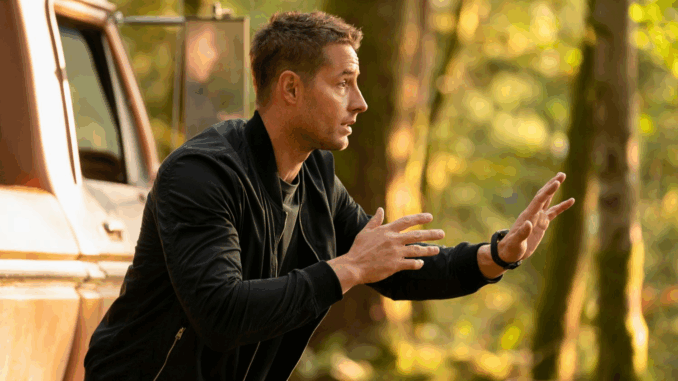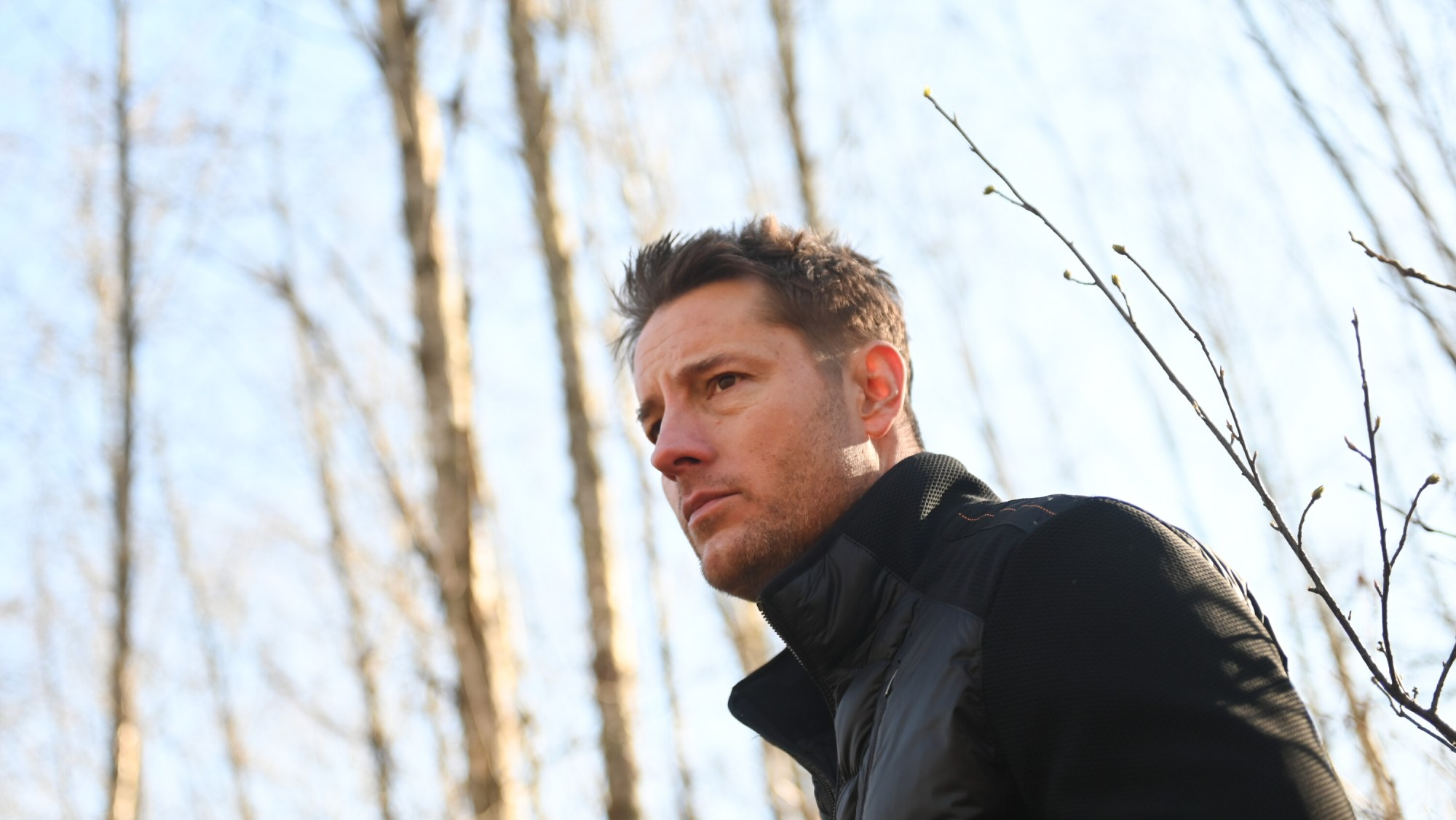
From Humble Beginnings to Soap Star Recognition
Justin Hartley’s journey through the Hollywood machine didn’t start with immediate stardom. Born in Knoxville, Illinois, and raised in the Chicago suburb of Orland Park, Hartley wasn’t born into the entertainment world—he built his path through persistence and passion. After studying history and theater at Southern Illinois University and the University of Illinois at Chicago, he made his way to Los Angeles, like countless aspiring actors before him.
His first major breakthrough came in 2002 when he was cast as Fox Crane in the NBC soap opera Passions. As one of the show’s most talked-about characters, Hartley quickly garnered attention for his good looks and charisma. While Passions offered him national exposure, the soap opera genre often comes with a double-edged sword—typecasting. Many actors find it difficult to move beyond the confines of daytime television, and Hartley was no exception.
Yet, this was just the beginning of a career defined not by consistency in roles, but by the ability to continually reinvent himself when faced with industry stagnation.
A Superhero Phase: Playing Green Arrow in Smallville
Hartley’s second major career shift came in 2006 when he was cast as Oliver Queen, aka Green Arrow, in Smallville. Originally meant to be a guest appearance, his performance resonated with fans and producers alike. Hartley was promoted to series regular, and Green Arrow became a beloved character during the final seasons of the show.
In a television landscape that was only beginning to embrace superhero culture, this role helped rebrand Hartley as more than just a soap opera star. He was now part of a major primetime success with a devoted fan base. However, despite the success, once Smallville ended in 2011, he once again faced the industry’s fickleness.
Roles dried up. He found himself auditioning for pilots that didn’t get picked up and taking supporting parts in shows like Revenge, Emily Owens, M.D., and Mistresses. It was a frustrating period—he was working, yes, but he wasn’t landing the kinds of leading roles that would take him to the next level.
Navigating Career Setbacks: Patience and Persistence

Between 2012 and 2015, Hartley’s name was still circulating in Hollywood, but he wasn’t yet a household name. Unlike other actors who peak early and fade away, he kept pushing forward—never allowing rejection to stop him from pursuing the next opportunity. He used this period to hone his craft, learning from each role, regardless of screen time.
What’s impressive is that Hartley never let these setbacks define his trajectory. Many actors burn out or step away from the industry during such lulls. Hartley instead treated every job—no matter how small—as a stepping stone.
During this phase, he also took roles in indie films and made brief but memorable appearances on major shows like Castle and Chuck. These roles didn’t dominate headlines, but they showed casting directors that he had range—and more importantly, professionalism.
Breakthrough with This Is Us
Then came 2016, the year that changed everything.
Hartley landed the role of Kevin Pearson in This Is Us, a family drama that would go on to become one of the most critically acclaimed and beloved series of the decade. His character—an actor struggling with self-worth, identity, and addiction—resonated with audiences on a deeply emotional level.
Initially, Kevin seemed like the stereotypical “pretty boy” of the family, but Hartley peeled back layers of vulnerability and pain in his portrayal. His performance showed viewers and critics alike that he had emotional depth, subtlety, and leading-man presence.
This Is Us not only revived his career—it transformed it. Over the show’s six-season run, Hartley was nominated for several awards, gained a massive fanbase, and solidified his place in primetime television history.
Redefining the Hollywood Male Lead
One of Hartley’s most valuable contributions to television is his redefining of what it means to be a male lead. Kevin Pearson is flawed, self-aware, and emotionally complex. Hartley’s ability to portray vulnerability challenged outdated stereotypes of masculinity.
In interviews, Hartley often spoke about the importance of men addressing their emotions, dealing with trauma, and learning how to apologize and grow. His work in This Is Us mirrored a cultural shift toward more emotionally intelligent male characters—and helped push it forward.
Expanding His Creative Horizons
Success on This Is Us gave Hartley creative freedom. He has since ventured into producing and directing. In 2022, he executive produced and starred in The Noel Diary, a Netflix romantic drama that showed yet another side of his acting capabilities.
He’s also been cast in upcoming drama series and feature films, with several in development under his production company. This phase of his career represents not just reinvention, but expansion—growing from an actor into a full-fledged storyteller.
Lessons in Reinvention
Justin Hartley’s story is more than a resume of roles—it’s a case study in resilience. At multiple points in his career, he could have given up or settled for the limited roles offered to him. Instead, he chose to reinvent.
Key takeaways from his journey include:
-
Never stop showing up. Even when roles weren’t ideal, Hartley gave them his all.
-
Be patient. The industry doesn’t reward everyone overnight. Longevity matters.
-
Take risks. Transitioning from daytime TV to primetime drama wasn’t easy, but it was necessary.
-
Stay prepared. Hartley’s breakthrough only came because he stayed sharp, professional, and passionate through the quiet years.
Conclusion: A Hollywood Survivor and Thriving Artist
In a town that often celebrates fast fame, Justin Hartley represents the value of the long game. His ability to reinvent himself, weather career lulls, and emerge stronger than before makes him one of the most inspiring actors of his generation.
From Passions to This Is Us and beyond, Hartley’s journey is proof that success is not a straight line—but with persistence, self-belief, and adaptability, reinvention is not only possible—it’s powerful.
